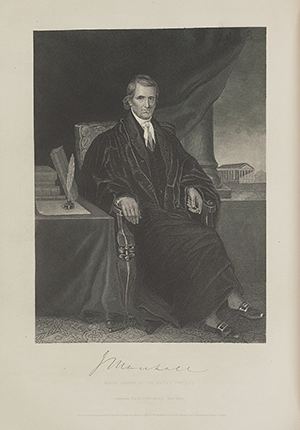Summary
William Marbury received a judicial appointment from President John Adams, but his commission was not delivered before Adams’s term ended. When President Jefferson refused to deliver Marbury’s commission, Marbury asked the Supreme Court to order the new Administration to deliver it and finalize his appointment under the Judiciary Act of 1789. Although the Supreme Court held that it could not provide a remedy for Marbury’s claim because the relevant part of the Judiciary Act was unconstitutional, the Court’s decision in Marbury confirmed the principle of judicial review—that the Court has the power to declare laws unconstitutional.







